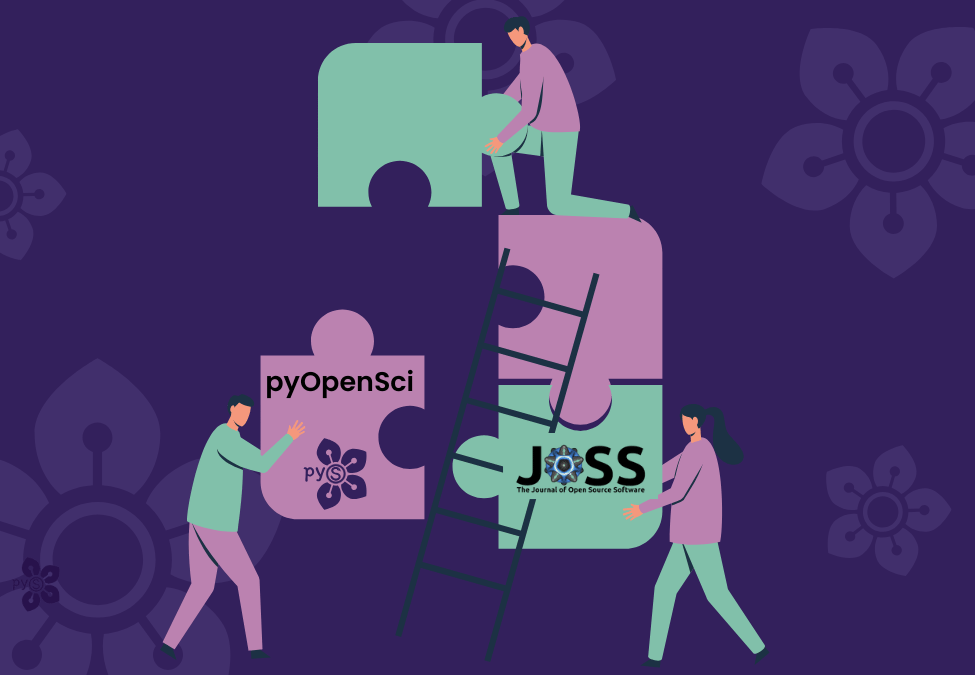Our open peer review process makes scientific software better and easier to discover. Check out our accepted packages.
How Python software peer review works
Software peer review, similar to the review of scientific papers, is a process where scientists vet software code, documentation and infrastructure. pyOpenSci leads an open peer review process run by a community of dedicated volunteers. Reviews are supportive and fully transparent with the shared goal of improving the quality, usability and maintainability of the software that is driving open science.
- Diverse teams lead each review, enhancing the overall feedback quality.
Get a fast-track JOSS publication
Our partnership with JOSS means that you don’t have to choose between pyOpenSci and JOSS. Simply submit your package to pyOS for review. If your package is accepted and in scope for JOSS, it will be fast-tracked through JOSS’ review process.
Scientists need trusted and vetted software
Through our partnerships with domain specific communities our catalog of trusted tools for scientists across domains continues to grow.
Peer review benefits open source maintainers
The pyOpenSci peer review process multiplies shared knowledge, making it easier for Pythonistas of all levels to accomplish challenging tasks, such as navigating the Python packaging ecosystem, with relative ease. And our diverse community supports scientific package maintainers in their efforts to develop and build robust software.
Get involved with software peer review
Become a pyOpenSci reviewer
We could use your help! Fill out our reviewer form. We will contact you if we have a package that we need reviewers for. It’s OK if you’ve never reviewed a package before! We’ll walk you through it.
See Our Review Process in Action
Our software review process is run using GitHub issues. This means that anyone can check in on any part of any review and read all of the conversation. Check it out.
Ready to Submit a Package for Review?
To submit a package to us, you need to open an issue in our peer review GitHub repository. Learn about the steps to submit a package for open peer review in our guidebook.
Meet our editorial board
The pyOpenSci software peer review process is led by a volunteer team of editors from the scientific Python community. Editors do the following things:
- They find reviewers from diverse backgrounds who have a mixture of scientific domain and Python experience.
- They oversee the entire review process for a package ensuring it runs in a timely and efficient manner
- They support the submitting authors and reviewers in answering questions related to the review
- They determine whether that package should be accepted into the pyOpenSci ecosystem once the review has wrapped up.
Learn more about the editor role at pyOpenSci in our peer review guide.
Emeritus & Guest Editors
We are deeply grateful for those served on our editorial board previously!
Recently accepted Python packages
BlockingPy
Blocking records for record linkage and deduplication with Approximate Nearest Neighbor algorithms.;
swiftgalaxy
Load in particles of a simulated galaxy, rotate coordinates, easy spherical/cylindrical coordinates, access integrated properties, and more.
ChemInformant
A robust, high-throughput Python client for retrieving chemical information from the PubChem API; it returns analysis-ready Pandas/SQL outputs, handles caching, rate-limiting and retries, and includes convenient CLI tools.
View All Accepted Packages



